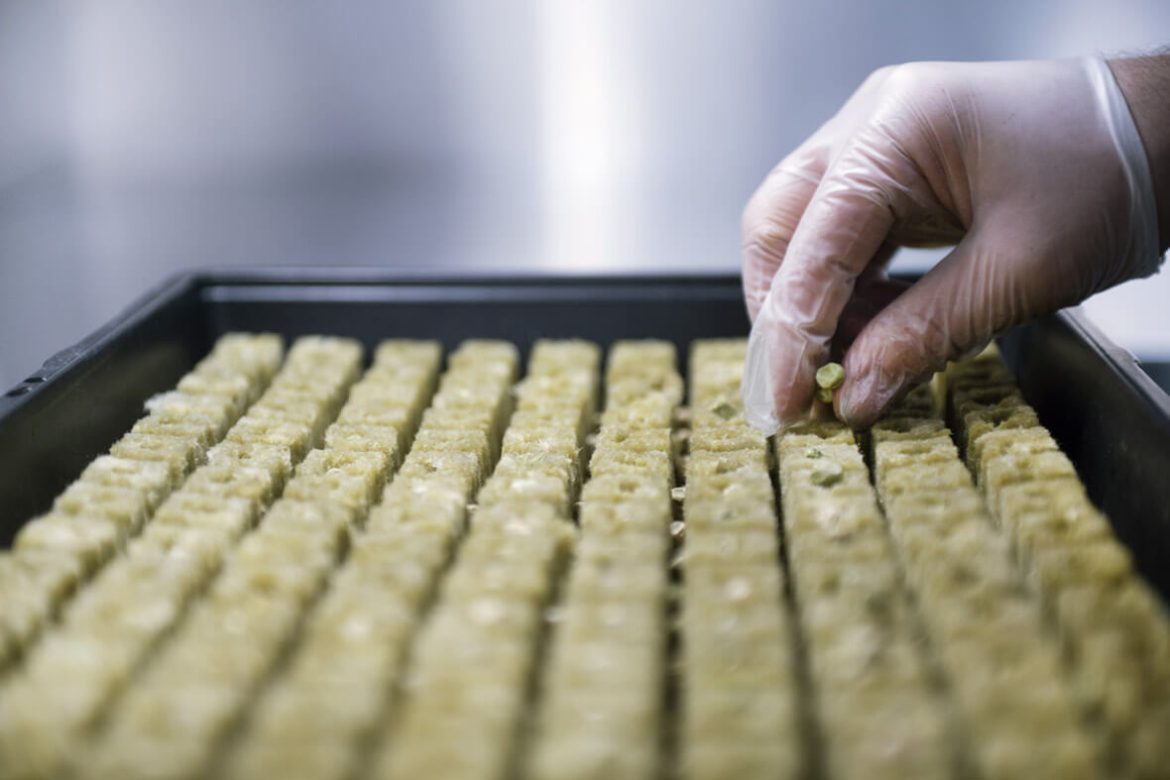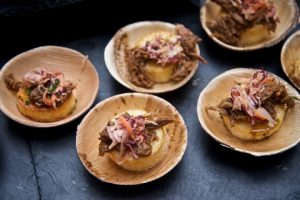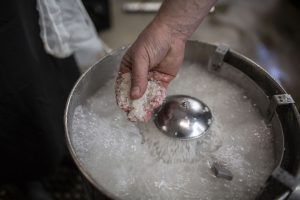
These days, nearly everyone in the media business is questioning their identity. Breakneck technological change; round-the-clock readership cycles; automated advertising platforms.
Since we printed our first story a decade ago, food has gone from sidebar to front page. Every newspaper, magazine and podcast has multiplied its coverage of comestibles, cooks and costermongers. Even better, many of the ideas that Edible was founded to champion—eat local, read labels, know your farmer, vote with your fork—and that were once considered radical and revolutionary are now almost mainstream.
So, what’s a company like Edible to do? Have we worked ourselves out of a job by inspiring everyone to take food more seriously?

We believe that there’s more reason for us than ever before. Because even though more and more media are covering food and drink, they aren’t telling the difficult stories: food diversity loss, hunger and obesity, the pollution caused by industrial farming. We grapple with these challenging questions every day, and about how technology—from CRISPR to farm robots—will alter our food culture in the future. (Our third annual Food Loves Tech event, on November 2 and 3 at Industry City in Brooklyn, is where this glimpse into tomorrow’s meal comes to life.) They aren’t telling the hyper-local story either.
Here’s what we stand for, and will always stand for: We chronicle how the region eats. Through editorial and at events where our stories come to life, we celebrate the people who are building the sort of food culture we want—one that’s diverse, accessible, sustainable and delicious.
Here’s what we stand for, and will always stand for: We chronicle how the region eats. Through editorial and at events where our stories come to life, we celebrate the people who are building the sort of food culture we want—one that’s diverse, accessible, sustainable and delicious.
That means we hunger for bits of forgotten food history like Long Island clam pie or Ebinger’s blackout cake; community gardeners and urban farmers who green our neighborhoods; citizens who fill their shelves with DIY canned goods and home-infused spirits; tech entrepreneurs who erect indoor farms; a dumpling in Sunset Park or North Fork winery that’s worth a trip; an artisan, distiller or chef that makes their own aquavit or cured meats; and any local trends that are making a difference in how we think about food.
Along with other Edible New York titles, we work with a network of Edible publishers across North America all devoted to strengthening their local food and drink makers.

Calling on our readers to seek out and support their local food and drink makers isn’t enough anymore. That’s because the really big battles have moved to a larger stage: in corporate boardrooms figuring out how to source cage-free eggs; in state senates where politicians are funding free, real food school lunches; in international climate meetings where farmers are considered an essential ally to store carbon in global soils.
In fact, the goal of our Food Loves Tech gathering in November is to feature the sorts of innovators and activists that we want feeding us tomorrow and every tomorrow. So we’ve turned our editorial sights on the technology that is transforming our food chain, fueled by an exuberance around foodtech that reminds us of the “local food movement” two decades ago.

There’s some hope that the tech mentality of moving fast and breaking things might actually help scale up the good food movement in a way that we haven’t yet been able to. Every foodtech and agtech startup we see was born in the post–Michael Pollan era: It’s their mission to fix a broken food system. That is a radically different approach to food than the food companies of yesterday. Which makes us hopeful. But we are also wary of a digital disruption of our most sacred and analog of human pursuits. And so we are committed to asking if this tech helps us farm better and eat better. And if it doesn’t, we will call it out.
We’re building a sort of contingent to help tell this story, too. More and more Edible gatherings are as much education as networking affairs. Places where bartenders mingle with bartenders, chefs with chefs, celebrating and strengthening with them. If you happen to make your dime from food, we have a club you can join to be part of these gatherings. We call it The Collective and it’s sort of like a workers guild—but with complimentary food and drinks, and an opportunity to hear, be a part of the topics we’re chronicling.
Fortunately, our audience of loyalists is still hungry for these nuanced tales. They want our guidance on how to build DIY skills in gardening and food making, and also how to support community food makers. They take food and drink seriously. But they also know it’s one of life’s greatest joys. As Garrett Oliver recently told us over a beer, the dinner table and the bedroom are where most of life’s pleasures occur.
Featured photo credit: Liz Clayman
SaveSave

















